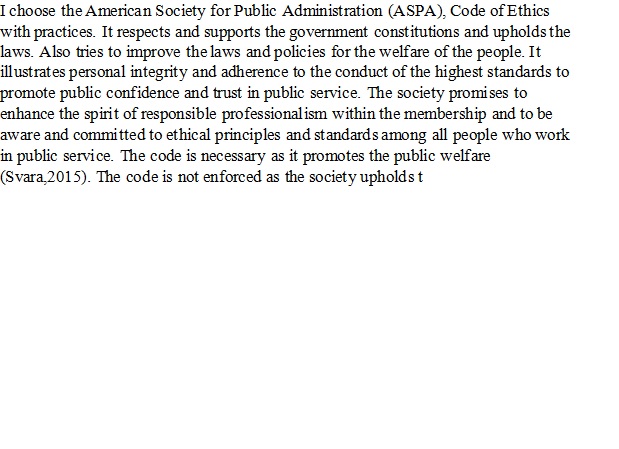


Q Using a public service-oriented professional code of ethics of your choice, review the code and address the three objections to codes of ethics found in Chapter 5 of our readings: (1) Is the code necessary? (2) Is it too broad or does it include sufficient detail? and (3) Is it enforced in the profession? In reviewing these objections, examples should be utilized to support a "yes" or "no" response. Please provide a link to your selected code so others may review the code as well. How powerful is the pressure to conform to organizational norms and expectations in shaping the behavior of people who work in public and nonprofit organizations? How would a professional working in such an organization know whether, and when, independent thinking and dissent are appropriate? Select either Case 7.1, “The Troubling Reference,” or Case 7.2, “The Big Donor.” Which of the three analytic approaches (or more than one) from Exhibit 7.1—virtue based, principle based, or results oriented—would be the most useful for deciding what to do? Why?
View Related Questions